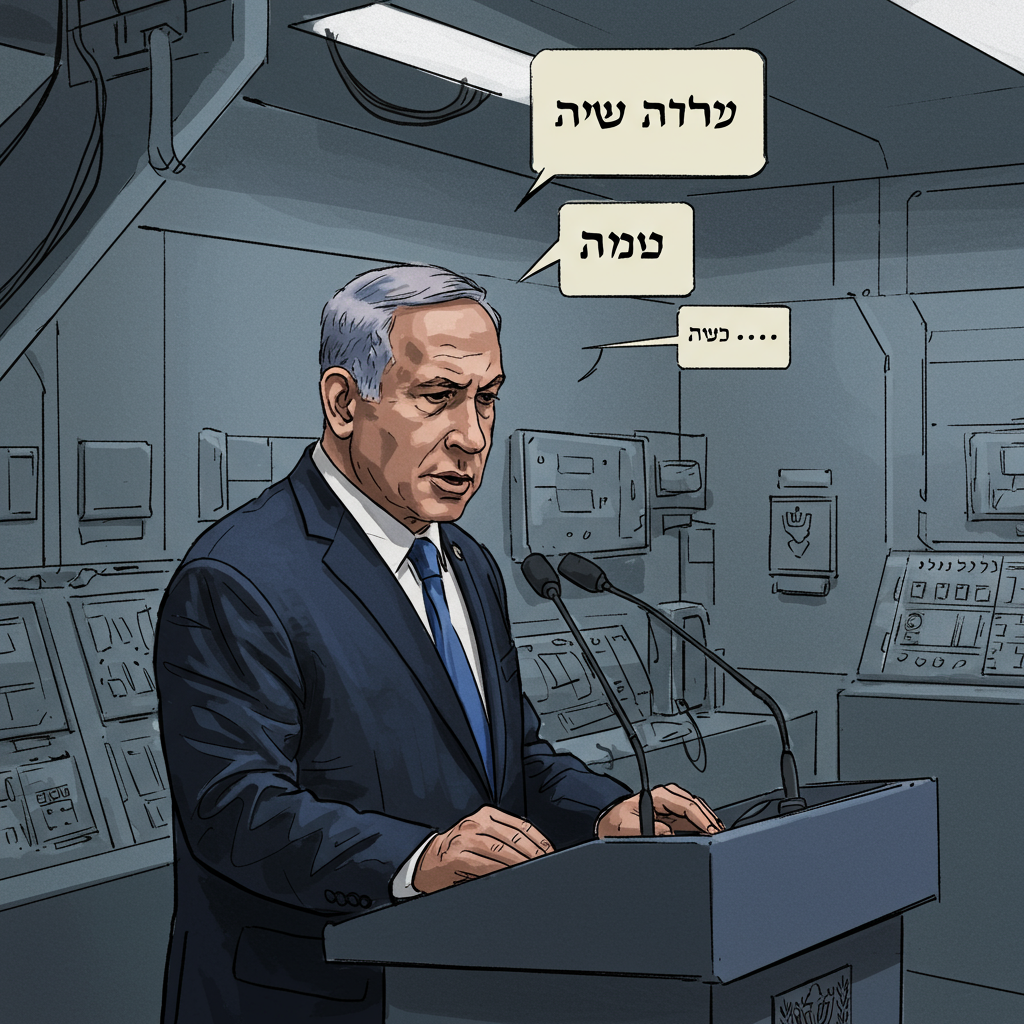In a significant public statement, israeli Prime Minister Benjamin Netanyahu declared that the release of hostages held in Gaza is now the foremost objective of the ongoing conflict. Speaking recently at a Shin Bet security facility, Netanyahu linked this new emphasis directly to the outcome of Israel’s recent twelve-day confrontation with Iran. He suggested that this period has created new strategic “opportunities.”
Netanyahu stated that these opportunities include, “First and foremost, to rescue the hostages.” While acknowledging the continued need to “solve the Gaza issue” and “defeat Hamas,” he expressed confidence that both goals are achievable. This marks a notable shift in public messaging, particularly placing the rescue of captives ahead of the stated aim of dismantling Hamas, a point highlighted by advocacy groups like the Hostages and Missing Families Forum.
Shifting Priorities Amidst External Pressures
The Prime Minister’s statement comes amidst considerable external pressure, most notably from the United States. Former President Donald Trump has been particularly vocal, publicly urging for a resolution to secure the hostages’ return. Some political observers interpret Netanyahu’s new emphasis, including his specific use of the word “rescue” rather than “release” or “deal,” partly as a gesture intended to align with this U.S. pressure.
Reports indicate Netanyahu may believe the recent conflict with Iran has potentially isolated Hamas, which is backed by Tehran, thereby opening a window for negotiation or other means of retrieval. This perspective aligns with comments from Israel’s Chief of Staff, Lieutenant General Eyal Zamir, who suggested the outcome against Iran could aid Israeli objectives in Gaza. Despite this potential optimism, officials involved in discussions caution that “no breakthrough had been reached” regarding a hostage deal.
The State of Negotiations and Key Demands
Negotiations for the return of the remaining hostages have been complex and protracted. Talks are described as “ongoing at all times,” with Israeli officials expressing hope for future developments. However, fundamental disagreements persist between Israel and Hamas.
Hamas officials have reiterated their readiness to resume mediated talks but insist that any agreement must include a permanent ceasefire and a full Israeli withdrawal from the Gaza Strip. Israel, conversely, maintains that the conflict can only end if Hamas is dismantled and disarmed, a precondition the militant group refuses. A proposed framework from the U.S. includes a 60-day ceasefire for the release of half the hostages in exchange for Palestinian prisoners and remains, followed by a permanent truce for the remaining captives.
Broader Context and Challenges
Netanyahu’s comments also coincided with the Jerusalem District Court granting a postponement of his testimony in his corruption trial, citing diplomatic and security considerations. This timing fueled speculation about a potential link to sensitive ongoing negotiations. Security Cabinet meetings have been convened to discuss the situation, including Hamas’s stance.
The humanitarian crisis in Gaza remains severe. According to Gaza’s health ministry, Israel’s military campaign following the October 7, 2023 attack has resulted in over 56,000 Palestinian deaths and displaced nearly the entire 2.3 million population. The original October 7 assault by Hamas killed 1,200 people in Israel and resulted in 251 abductions. Of the estimated 50 hostages still held, only around 20 are believed to be alive. The Hostage Families Forum has welcomed Netanyahu’s recent statement as a long-overdue prioritization, urging it be translated into a comprehensive deal.
The military situation on the ground continues to evolve. The Israeli military recently issued new evacuation orders in northern Gaza ahead of anticipated intensified fighting. Meanwhile, domestic intelligence reports presented to Netanyahu highlighted efforts to counter Iranian-directed attacks inside Israel during the recent conflict, with authorities reporting success in foiling these attempts. The focus remains dual: addressing the immediate priority of the hostages while also seeking a resolution for the broader challenges posed by Hamas in Gaza. The path forward remains uncertain, balancing strategic opportunities perceived after the Iran conflict with the complex realities of negotiation and military objectives.
Frequently Asked Questions
What led Prime Minister Netanyahu to prioritize the release of hostages now?
Prime Minister Netanyahu stated that the recent successful confrontation with Iran created new strategic opportunities. He specifically identified the release of hostages in Gaza as the primary opportunity arising from this period. This shift in emphasis is also seen by some analysts as influenced by significant U.S. pressure, particularly from former President Donald Trump, who has publicly urged for a hostage deal. Netanyahu’s language, using “rescue” instead of “release,” may also signal a renewed focus potentially linked to these perceived new circumstances.
What is the current status of negotiations for the remaining hostages in Gaza?
Negotiations for the hostages’ return are currently ongoing, with officials stating that talks are happening constantly. However, despite public statements suggesting opportunities, officials involved have cautioned that no definitive “breakthrough” has been reached yet. Key sticking points remain Hamas’s demand for a permanent ceasefire and full Israeli withdrawal as prerequisites for a deal, conditions Israel rejects unless Hamas is dismantled. A U.S.-proposed framework involving phased releases and ceasefires is reportedly on the table.
How many Israeli hostages are currently believed to be alive in Gaza?
According to recent estimates cited by advocacy groups like the Hostages and Missing Families Forum, out of the approximately 50 Israeli hostages who remain captive in Gaza, only around 20 are currently believed to be alive. These figures highlight the urgent nature of the situation and are a driving force behind the continued efforts by Israeli officials and international mediators to secure their release.




